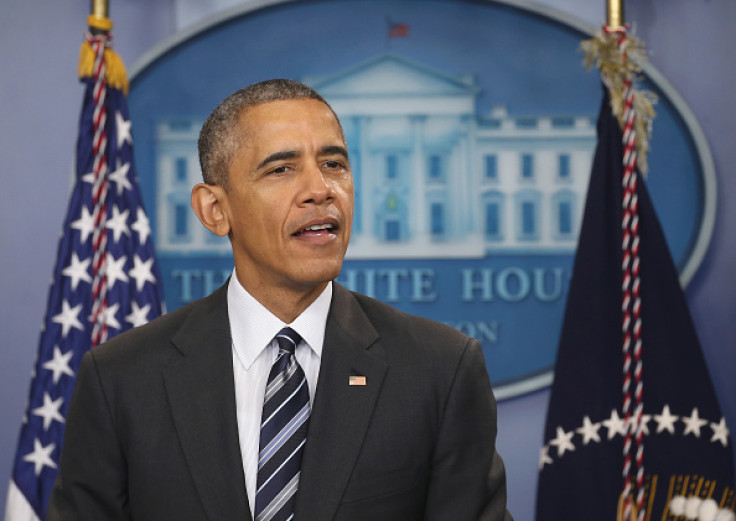Barack Obama seeks $19bn to fund new cybersecurity system

Barack Obama submitted his last budget proposal as president of the United States on 9 February, seeking an additional $19bn (£13bn) to boost the government's cybersecurity system. The White House also unveiled its Cybersecurity National Action Plan (CNAP), to protect citizens, tech companies and security agencies from hackers.
Through CNAP, The government plans to spread more awareness among citizens, providing "simple and actionable information" on cybersecurity. A new dedicated arm, the National Cyber Security Alliance, has been launched just for this purpose.
The White House said in a memo: "The National Cyber Security Alliance will partner with leading technology firms likeGoogle, Facebook, DropBox, and Microsoft to make it easier for millions of users to secure their online accounts, and financial services companies such as MasterCard, Visa, PayPal, and Venmo that are making transactions more secure."
Obama's last presidential budget proposal has also put forward $3.1bn to a dedicated department, working on updating security systems. The Information Technology Modernization Fund, as the proposal dubs it, will be solely responsible for ensuring complete overhaul of "IT infrastructure, networks and systems that are expensive to maintain, provide poor functionality, and are difficult to secure".
The budget proposal is reflective of the Obama administration's intentions to refocus on cybersecurity in its final lap. Following the recent hacks of some of the top officials' personal and official accounts, the government seems to have come to terms with the real need to address this threat to national security.
In efforts to boost tech recruitment, the president's budget has also allocated $62m to attract qualified cybersecurity specialists. However, it is uncertain if the Obama administration's recruitment efforts will see satisfactory fruition, especially after alienating high profile tech-specialist Ashkan Soltani, who was recently denied security clearance by the White House.
© Copyright IBTimes 2024. All rights reserved.






